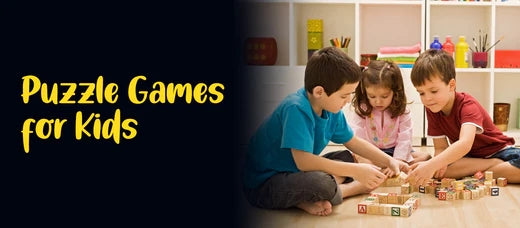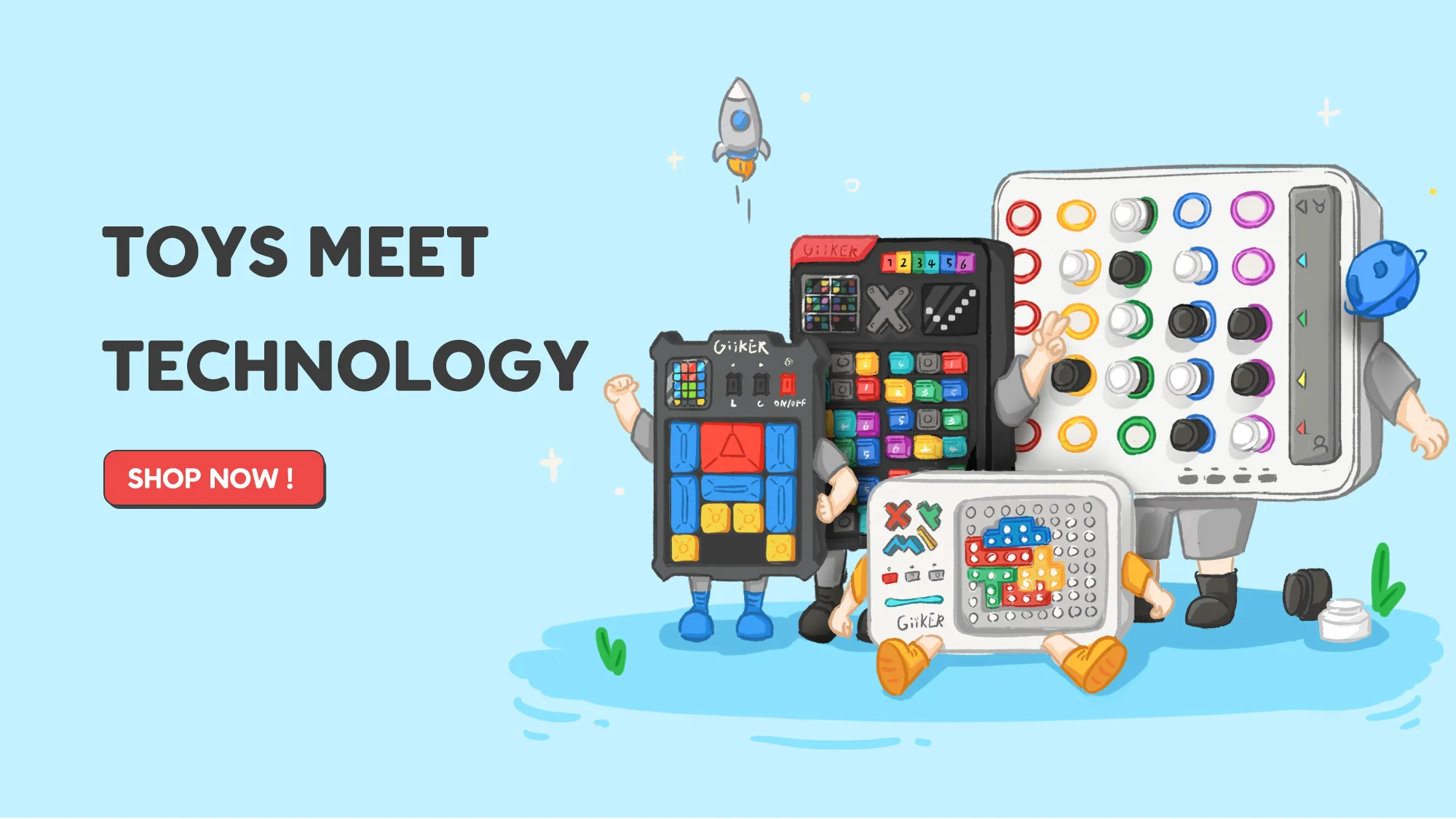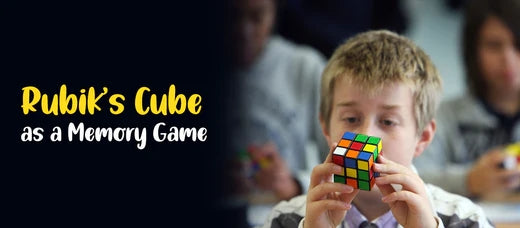In this digital age, where being active without a screen is very important, this guide explores the fascinating world of educational puzzles for kids. Find out about the different benefits for different age groups, such as improving cognitive development and encouraging creative problem-solving. Join us as we look into the world of interactive kids' games from a broad perspective that strikes a balance between fun and learning. This complete guide gives you tips on how to include puzzle games in your daily life so that they have a positive effect on the brain development of children today and tomorrow.
Fun Learning Activities
It's no longer just fun for kids to play puzzle games; they're also great indoor activities that combine learning with fun. These activities that don't involve screens can help kids grow in ways that go beyond traditional schooling.
The importance of Puzzle Games for Kids
Puzzle games are a fun and educational way to pass the time in a world full of digital distractions. They keep a child's mind active and help them learn important skills while having fun.
The Balance Between Fun and Learning
Finding the right balance between fun and learning is important for educational games to work. Puzzle games meet this need, which makes them a great choice for both parents and teachers.
Types of Puzzle Games
To choose the best puzzle games for kids of different ages, it's important to know what stages of development they are in. There are many kinds of puzzles for kids of all ages, from easy jigsaw puzzles for toddlers to hard logic puzzles for older kids. Puzzle games help you think of new ways to solve problems. They push kids to think outside the box and come up with new ways to solve problems. This part of solving puzzles helps a child's mind work in different ways.
Jigsaw Puzzles
Jigsaw puzzles are good for younger kids because they help them learn about space and use their fine motor skills.
Crossword Puzzles
Crossword puzzles are great for language development because they help you learn new words and think more logically.
Sudoku

Sudoku is a number puzzle that keeps kids thinking and improving their math skills.
Logic Puzzles
There are many kinds of logic puzzles, and they are very important for learning how to solve problems.
Benefits of Puzzle Game
Cognitive Development
Puzzle games keep your brain active, which helps your brain grow and makes you smarter overall.
Problem-Solving Skills
Kids learn to solve problems by making mistakes and trying again. This gives them a sense of accomplishment and boosts their confidence.
Improved Concentration
Kids can concentrate and pay attention longer when they play puzzle games because they are so immersive.
Enhancing Memory
Puzzles that use patterns and solutions over and over again can help you remember things.
Choosing the Right Puzzle Games
There are a lot of different kinds of puzzles on the market, from educational apps to classic board games. There is something here for every child because these interactive games are made for kids with a wide range of interests and ways of learning.
Age-Appropriate Selection
Different age groups require different challenges. Choose puzzles that match your child's developmental stage.
Educational Value
Look for puzzle games with clear educational objectives, ensuring your child gains knowledge while having fun.
Interactive and Engaging Features
Opt for games that encourage interaction, as this enhances the overall learning experience.
Developmental Impact of Puzzle-Solving
Puzzles have developmental benefits beyond cognitive ones. It makes you feel accomplished, boosts your self-esteem, and makes you love learning for life.
How to Introduce Puzzle Games
As worries about too much screen time grow, puzzle games are a nice change of pace. They give kids a hands-on, screen-free experience that keeps their attention without the problems that can come from using devices too much.
Making it a Family Activity
Turn puzzle-solving into a family affair, fostering a positive environment and encouraging teamwork.
Engaging Indoor Activities for Children
Make it a habit to solve puzzles every day. Not only do these fun indoor activities keep kids busy, but they also help their mental and emotional health.
Incorporating into Learning Routines
Integrate puzzle games into daily routines, showing kids that learning can be a part of everyday activities.
Tips for Parents and Educators
Monitoring Screen Time
Digital games are fun, but it's important to keep an eye on and limit screen time for a healthy lifestyle.
Creating a Puzzle-Friendly Environment
Choose a place that is comfortable and well-lit to do puzzles. This will make the area good for learning.
Integrating Puzzles into Education
Work with teachers to make sure that puzzle games are seamlessly integrated into the curriculum. This will ensure that students learn in a variety of ways.
Balancing Fun and Educational Value
Puzzle games should be fun but also educational. Choose games that suit your child's development and interests.
Encouraging Persistence
Puzzles might be hard for kids. Explain that learning means getting past problems as you encourage people to be persistent and strong.
GiiKER Super Slide Puzzle Games
Ultimate Goal
Slide the red square block strategically to shift the big square block towards the automatic detection zone at the bottom middle. Use the Giiker Super Slide puzzle to solve the puzzle and showcase your problem-solving skills
Builds Critical Skills
This puzzle not only entertains but also helps develop critical skills such as reasoning and planning. It's a great way to challenge your youngster and help them learn in a fun way.
Keep Away from Screen
Give your child a break from electronic gadgets. With over 500+ built-in challenges and 2 modes, this fidget puzzle is suitable for both kids and adults. It is a great toy for fidgeters, anxiety, focus, ADD, ADHD, and autism.
Challenge Mode
Test yourself with the time-limits challenge, which rates solving time from Fail to Super. Sharpen your skills every day; you will see the progress and get better!
PORTABLE FOR TRAVEL
Innovative pocket-size handheld game console that is perfect for travel. It's an ideal game for kids who love brain-teasing and puzzles. Keep them entertained on long journeys or during rainy days indoors.
Great gift
The math concept and retro handheld game boy design support 60 hours of game playing, are travel-friendly and make a great gift for kids and puzzle players.
Conclusion
This complete guide showcases the fun world of educational online puzzles for kids in the digital age, with a specific focus on striking the important balance between having fun and learning. Discover the many ways that engaging in puzzles and logic games can enhance clear thinking and foster creative problem-solving skills. Delve into age-appropriate choices and explore how incorporating the top 5 tricky puzzle games for kids can seamlessly become a part of their daily lives, helping them develop their cognitive abilities and problem-solving skills even when they're not actively using a screen




